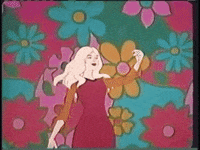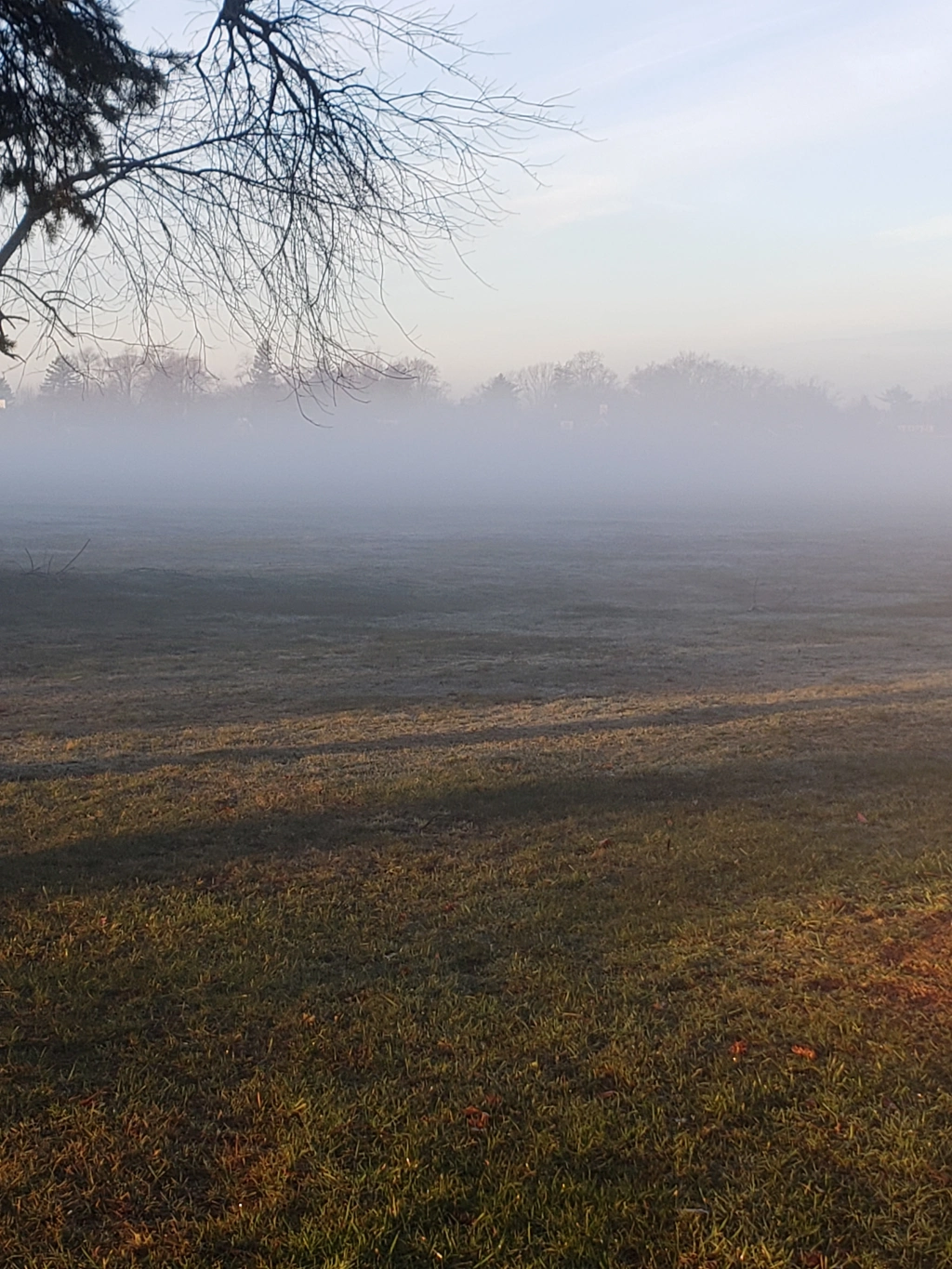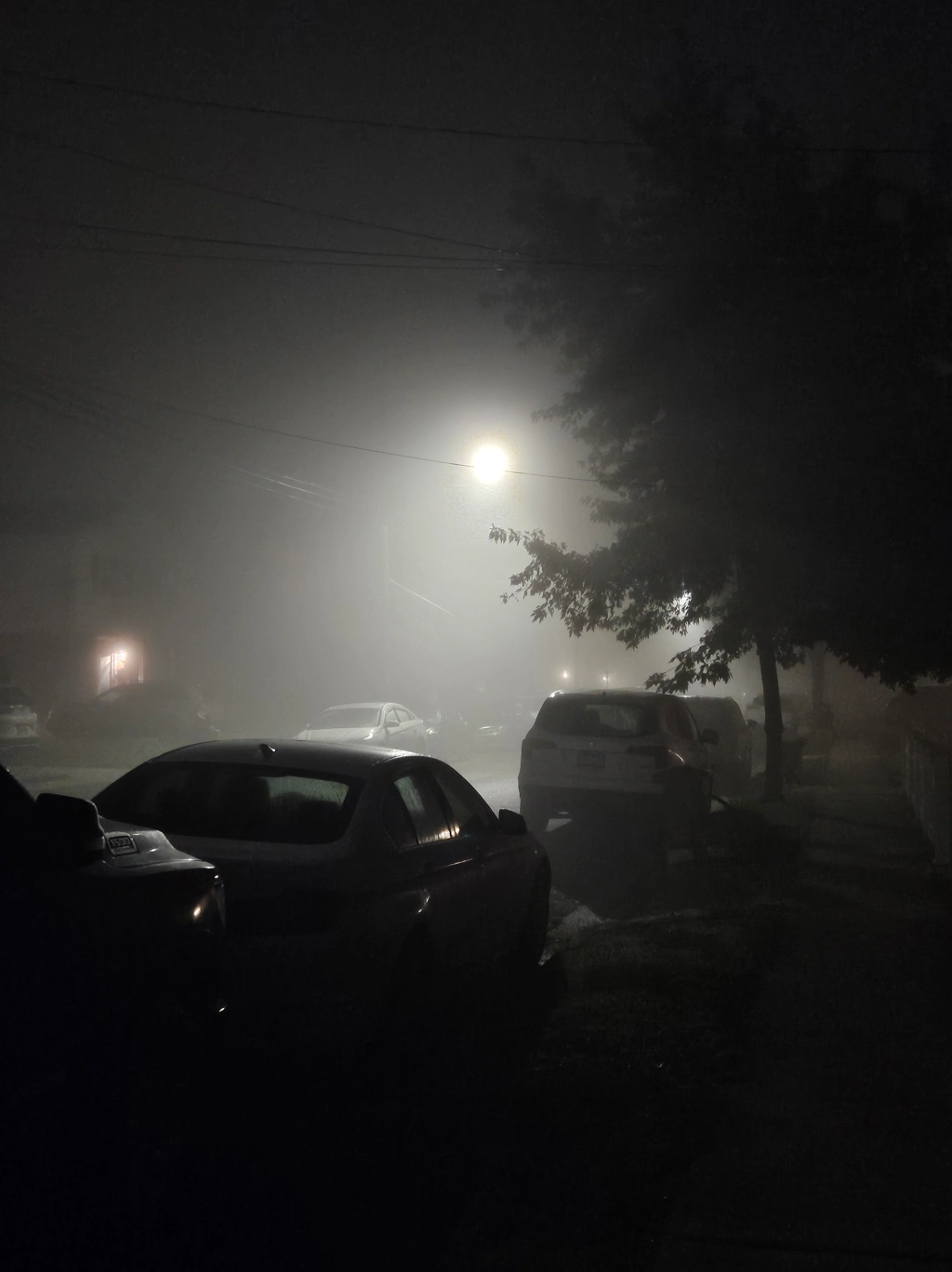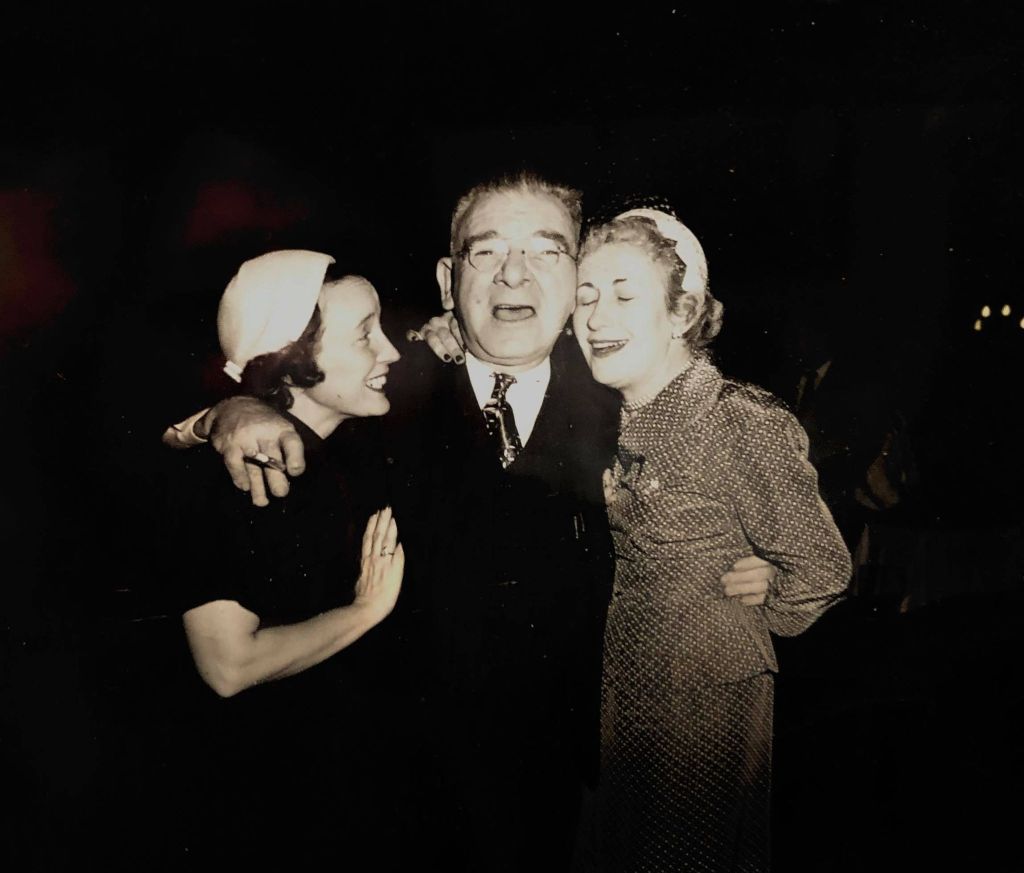
Terms of Endearment
My grandmother asked once,
“Why do you like this movie? It’s more
of a woman’s picture.” A rotary phone rings
on a stack of Prousts as my new husband fucks me
to “Gee Officer Krupke” on a mattress on the floor.
Six years older than Debra Winger’s character,
I don’t think I could manage being a quisling
in a maroon bathrobe cooking everyday Tex-Mex,
with child, not to mention three, sitting in a hot shower
patting the back of a baby with croup,
my husband off with the grad school girl
in tweed, stuck in Des Moines. By choice,
not by nature, I would be dead by now.
Before that, increasingly spiteful, contrite.
Yearly, phones become more cordless, the absence
of my wildness becomes deeper. My life orchestrated
by a sentimental Michael Gore score. I never thought
I’d start to need him, I say to myself, unwrapping
the pink tissue paper holding my rose-patterned brassiere.
Come to laugh. Come to cry. Come to Terms.
The poster promised. Like the Get Well Mommy cards
around my hospital bed or the orange light
of The King of the Whopper sign becoming brighter
as night wears on. The mission of advertising
is to validate feelings. Maybe I am more of a woman’s
picture in a mauve cloth dress on an overcast day,
the trade towers behind me, capped in fog.
“What’s so god-awful terrible about my little tumors?”
I ask. My grandmother says, “Oh God,” while laughing
at MacLaine’s “fan-fucking-tastic” line. Yearly,
things become more pronounced and more mundane.
We all get ecstatic, we all get ill. I never thought I’d start
to need anyone, I think, as I sit on the green astroturfed stairs
of the Cornhuskers’ Holiday Inn, watching children
play in the pool. One whips his hair, splashes,
then smacks his little brother. How quickly glee can turn
to tears. All of it a wailing cry outward or in, all of it to end
with a mascara-ed and violet eye-shadowed deathbed scene.
Years later, my grandmother confused by who I am.
Little Cathedral
I am not there but walking through her house—
possessions in plastic, strips of masking tape
bearing our names. I was left a little church
with a frosted bulb to light up inside. I used to wish
I had a Barbie to brush and dress up to lay down
in the path between the pews, blue-eyed gaze frozen.
I was left instead with dust in the hushed
sunlit house. Sitting on the floor to click the light
through the red and blue glazed plastic windows.
The house heavy with the death of her son found
hanged in the basement and my blind uncle who sat
with a frozen gaze, head back in a green chair,
radio crackling, pipe smoke rising around him. I am not there
but sleeping on the sunporch. A stack of cassettes, windows
wrapping the room to look out onto trees
and the cracked tar driveway. The realtor doesn’t think
it’s a tear-down—that there’s value in its age and character.
But lately the suburbs are cladded with McMansions.
My aunt shook her head at the strip malls going up
over farmland—concrete cathedrals—Oscos closing
for enormous, sun-drenched organic markets.
A Jenny Jones episode showed queens hollering
at one another. My aunt said she didn’t understand
why gays were that way. I don’t mean to paint her that way,
but it sticks. I was furious inside and I still don’t know
how to articulate it. I sat with anger under the ornate dome
in the Baha’i House of Worship. The vastness of religion
and its disturbingly enlightened tribes. When it was hot
in the heat wave, we sat near the sweating window unit
and fanned ourselves with doll magazines. My sister and I
trekked to the mall where she worked at the Gap. The cold,
clean bright white store stacked with jeans and plaids and khakis.
The scents of Grass and Dream perfumes. Today she visits me
in Jersey and we venture out in snow to the mall. We are still
browsing with more layers of years over us. Twenty-three years ago
we saw Clueless at Old Orchard. Her boyfriend at the time
said it made him want to be in high school again. I doubt I’ll ever
end up rising enthusiastically to mornings of picking outfits
from an electric rotating closet rack. I lacked human interaction
and listened to songs like “In the House of Stone and Light.”
One rainy evening on the sunporch, the radio DJ announced
a new track from Michael Jackson called “You Are Not Alone.”
The music only took me so far. Soon I would leave that life.
I am leaving the house to stand in the driveway
to look up at the tree-reflected window
I’ll never look out again. I see my aunt smiling
in her glasses and denim skirt. People are always arguing
over objects. I rise to the day. I unwrap the church
from dust-scented tissue paper and I clear a spot on the shelf.
Becoming a Piece of Work is Man
My former self, drunken night out
in the club on the Scotland high school
drama field trip. Someone dropped a bottle
of beer on the dancefloor. We laughed
under the mirrorball over the shards.
Summer was open to me—I ran fields—
so green, weren’t they? The wind whipped up
my blond hair at the top of hills.
We snapped photos on black & white
Kodak disposables. I stood dramatically
against the blue sky in tight dark denim
with a vintage baby blue Adidas track jacket
and baby blue Nike high-tops. The pictures suggest
glib naiveté and blank melancholy. I cried
reading the end of Catcher in the Rye
on the plane ride over, night clouds
out the window. I went to Waterstones,
asked if they had Becoming a Man
and I was led to the gay section.
“Why do you want to read that?”
Asked a former friend. At dusk,
out the windows on the double-decker—
the curving streets alive. I began to read.
In the countryside, we skipped through heather
like idiots. In a black box theater:
Hair. The sweaty cast half-nude, writhing, belting out
Facing a dying nation. John and my arm
around his hardened shoulder
as he helped drunken me into his bedroom.
His breath of cider. I am thinking about John’s eyes.
I caught a too sweet, too brief moment
atop a cliff listening to Kate Bush scale
“Wuthering Heights” on my Walkman.
He wanted something we couldn’t speak.
Now he is grinning, sunglassed in digital
with his husband—an added layer
of the could-have-been. The stirred-up
feelings first reading the Monette.
The handsome model in black & white
on the cover, standing dramatically
against the sky. His Adam’s apple.
Streams of words all around
the flitting ruins of castles.
May you never lose that joy—
that breathtaking sense of possibility.
How dare they try to end this beauty?
But it’s hard to go back to that,
hard to replicate. Scaling cliffs
without knee pain. I know I’d be
saddened to return twenty years back
to the ache. And what would I have done
anyway? Performative writhing.
A pang when I find my stub to Hair.

Jeffery Berg’s poems have appeared in journals such as Impossible Archetype, Other People’s Flowers, Punch Drunk Press, El Balazo Press, GlitterMOB, the Leveler, and Court Green. He received an M.F.A. from NYU. A Virginia Center of the Creative Arts fellow, Jeffery lives in Jersey City and blogs at jdbrecords.
Image: “Painting Astoria” from Facebook Marketplace




